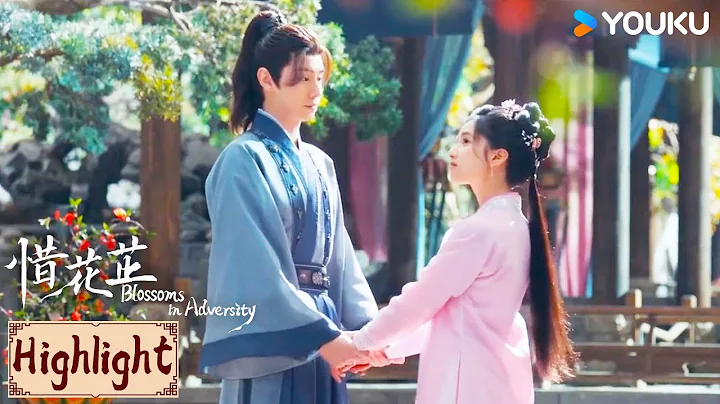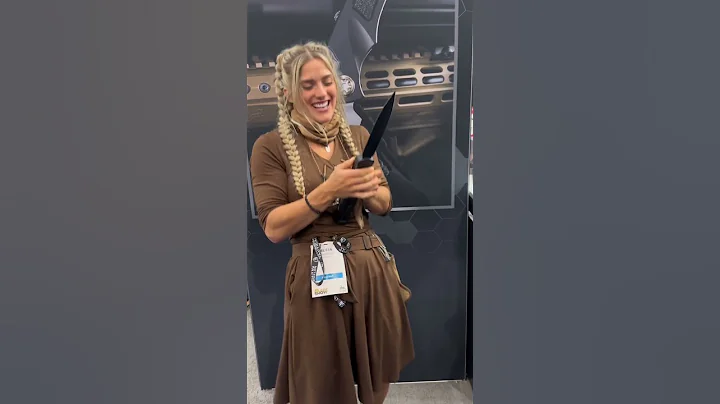Behind "Tang Bo Hu Spots the Fragrance of Autumn" is the frustrated life of a talented man and the precarious life of the Ming Dynasty
"Tang Bo Hu Spots the Fragrance of Autumn", a comedy by Mr. Xing, is refreshing to us, and we can easily pick up the classic lines in it. Such as "Xiaoqiang, what's wrong with you? You can't die! You and I have been dependent on each other for so many years. We have shared joys and sorrows for so many years. I have always taught and raised you as if I were my own flesh and blood. Unexpectedly, today, a white-haired person will send a black-haired person." From then on, we know Xiaoqiang is a cockroach.

For another example, when Tang Bohu flirted with Sister Qiuxiang, he said, "Sister Qiuxiang, when you find out that you have wronged me, you will definitely feel very sad and regret it. Why bother? Just come with me!"

Also, The four great talents in it have nothing to do with being suave, graceful, and poetic. Instead, they are dandies and spokespersons for exaggerated lives. Every day I think about how to pick up girls.

As everyone knows, the joy that Mr. Xing brings to us can only be reminded in the movie. The love between Tang Bohu and Qiu Xiang is even more impossible. So what are the real four great talents in Jiangnan?
Speaking of the "Four Great Talents", it generally refers to the four great talents in the south of the Yangtze River in the Ming Dynasty: Tang Bohu, Zhu Zhishan, Wen Zhengming and Xu Zhenqing. And this approximate time is from the Hongzhi period of the Ming Dynasty (that is, the diligent emperor who only married one queen in history and started the Hongzhi ZTE period in the middle of the Ming Dynasty) to the Zhengde period of the Ming Dynasty and the Jiajing period of the Ming Dynasty.
As the leader of the four great talents, Tang Yin (1470-1523) was named "Yin" because he was born in the Yin year of the year. Because Yin is a tiger, he also took the courtesy name Bohu and later changed his courtesy name to Ziwei. He is also known as the layman, the master of Taohua nunnery, Tang Sheng of Lu state, and the immortal official of Fugitive Zen. He is known as "the most romantic and talented man in the south of the Yangtze River" and is a native of Suzhou . A famous calligrapher, painter and writer in the Ming Dynasty. His poems, lyrics, music and poems, along with Wen Zhengming, Zhu Yunming, and Xu Zhenqing, are also known as the "Four Talents of the South of the Yangtze River" (also known as the Four Talents of the Wu Clan).

Tang Yin's father is a businessman and hopes that he will obtain fame. He was talented and intelligent since he was a child. He was familiar with classics and history and took the Children's Student Examination at the age of 16. He passed the county examination, government examination, , and college examination, and ranked first in high school. But in the 11th year of Hongzhi's reign in the Ming Dynasty (1498), he went to Nanjing for the provincial examination and won the first place, Jieyuan, so everyone called him Tang Jieyuan. The following year, Tang Yin went to Beijing to take the examination with great ambition. His colleague Xu Jing bribed the examiner Cheng Minzheng . After the incident, his friend Zhu Mu of the Tang Dynasty was slandered and imprisoned. As a result, he was dismissed and demoted to Zhejiang as an official. Tang Yin was too shameful to take up an official position. After returning home, he indulged in drinking to drown his sorrows, showing his arrogance and unruliness.
"In the Peach Blossom Temple in Taohuawu, there are peach blossom fairies under the Peach Blossom Temple. The Peach Blossom Fairies plant peach trees and pick peach blossoms in exchange for wine money. Others laugh at me for being crazy, but I laugh at others who cannot see through it.... I don't see the tomb of the heroes of Wuling, there are no flowers Farming without wine." "Peach Blossom Temple" by Tang Bohu. It is said that Tang Bohu fell in love with a house in Suzhou. It was an abandoned villa that "no one had left for a long time." Suzhou also has a place name, which is Taohuawu . According to records, when Tang Bohu decided to buy a house, because he had no money, he had to use part of his book collection as collateral to borrow money from an official friend in the capital. Later, he spent more than two years working hard to make money by writing and painting before paying off the purchase price of the house.

It can be seen that in ancient times, every famous literati basically failed in officialdom. Tang Yin was not only frustrated in officialdom, but also in love. The so-called "Tang Bohu points out the fragrance of autumn" is also a myth.
Feng Menglong took the title " Tang Jieyuan Yixiao Marriage" and compiled it into the widely circulated "Warning Words". In fact, according to notes such as "Cha Yu Ke Hua" and "Ear Talk", there was indeed an incident in the history of the Ming Dynasty where a slave girl was sold into slavery, but this was a scholar named Chen Lichao. To Tang Bohu's name. According to research by historians, Qiuxiang was a prostitute in Nanjing during the 6th year of Chenghua html in the Ming Dynasty. Her surname was Lin and her name was Nuer. She was more than ten years older than Tang Bohu. Taishi Hua is from Wuxi, 27 years younger than Tang Bohu. Therefore, Tang Bohu had no chance of getting married to "Three Smiles".

In the play, Mr. Xing has nine wives at the beginning. In fact, Tang Bohu is a poor scholar. "In the back room, bottles and pots are broken, and there are many things besides clothes and shoes" (Tang Yin's "Yi Wen Zheng Ming Shu"). He made a living by selling paintings, and it was difficult to maintain his life. He had no money to support eight or nine wives. In fact, Tang Yin did not take a concubine and marry a child. His first wife died of illness, and his second wife left Tang Bohu because she saw no hope of becoming an official. The last confidant was named Shen Jiuniang, and was rumored to be the ninth wife.
In the second year of Jiajing in the Ming Dynasty (1523), Tang Yin passed away at the age of 54. He could be regarded as having spent a life of "being laughed at because I am too crazy, but others cannot see through my laughter."

Zhu Yunming (1460-1526) was a calligrapher in the Ming Dynasty. His courtesy name was Xizhe, and his name was Haozhishan. He had an extra finger on his right hand, which was born from the Haozhi finger. He was a scholar at the age of 7 and a scholar at the age of 32. He served as magistrate of Xingning County and magistrate of Yingtianfu. Because of his dissolute nature and dissatisfaction with the corruption in the officialdom, he resigned and returned to the Soviet Union. He made friends, invited guests to drink heavily, and made wine to relieve his sorrows to vent his cynicism.

His calligraphy absorbed the calligraphy gods of Tang Yu Shinan and Yuan Zhao Mengfu , and developed into its own unique wild cursive . It was known as "No. 1 in the Ming Dynasty". It is said that "Tang Bohu's paintings, Zhu Zhishan's calligraphy " said. He died in the fifth year of Jiajing (1526) at the age of 67.
Wen Zhengming (1470-1559), was originally named Bi, with the courtesy name Zhengming, and later changed to Zhengzhong, nicknamed Tingyun, aliased as Hengshan Jushi, and was known as Wen Hengshan. A native of Changzhou (now Suzhou). One of the founders of "Wumen School of Painting". At the age of 54, he was awarded the title of "Wen Daizhao" by the imperial examination of the Ministry of Officials. Wen Zhengming was good at landscapes, flowers and figures. The best paintings passed down from generation to generation include "Thousands of Rocks Competing with Shows", "Ten Thousand Valleys Competing with Floods", "Picture of Mrs. Xiangjun", etc. Wen Zhengming is also good at ICBC cursive script . He is especially good at small regular script and can do everything in seal script, official script, regular script and cursive script.

He, Zhu Yunming and Wang Chong are known as the "Three Masters" of Chinese calligraphy in the Ming Dynasty. His handed down books include "The Drunkard's Story", "The Preface to the King's Pavilion", "Chibi Fu", etc. Wen Zhengming died in 1559 and was the oldest among the "Four Talents of Wu Clan".
Xu Zhenqing (1479-1511), also named Changgu and Changguo. He was born in Meili Town, Changshu, and later moved to Wu County (now Suzhou). Ming Dynasty litterateur. He is famous for his quatrain "The articles on Jiangzuo's family are full of jade, and the moonlight is on the trees and flowers in Yangzhou".

In his early years, he failed many times. After reading "Li Sao", he wrote "The Collection of Sighs" after reading "Li Sao". In the 18th year of Hongzhi's reign in the Ming Dynasty (1505), he heard that the Tatars had invaded, and the officers and soldiers were defeated in the war of resistance. He also wrote a long poem "A trip to Yutai". In the middle of the same year, he was buried and later awarded the title of Vice-Deputy of the Left Temple of Dali Temple. In the fifth year of Zhengde in the Ming Dynasty (1510), he was demoted to doctor of the Imperial College.
Xu Zhenqing occupies a special position in the poetry world. He has written so many poems that he is known as a "literary hero". Later, he had a close relationship with the Ming Dynasty writers Li Mengyang and He Jingming. They regretted abandoning their few works and advocated restoration together. Together with Li Mengyang, He Jingming, Biangong, Kang Hai, Wang Jiusi, Wang Tingxiang, they are also called "the first seven sons of ". In his later period, Xu Zhenqing believed in Taoism and studied health preservation. He died in the capital in the sixth year of Zhengde in the Ming Dynasty (1511), at the age of 33.

The villain Ning Wang in "Tang Bohu Spots Autumn Fragrance" is actually a real person. Zhu Chenhao , Ming Dynasty clan , Ming Taizu The fifth grandson of Zhu Yuanzhang, he is also the last generation of King Ning. In the tenth year of Hongzhi (1497), he attacked and granted the title of King Ning. In the fourteenth year of Zhengde (1519), King Ning Zhu Chenhao raised an army of 100,000 to rebel. He killed Sun Sui, the governor of Jiangxi, and Xu Kui, the deputy envoy of Jiangxi. He appointed Li Shishi and Liu Yangzheng as prime ministers, and Wang Lun as the Minister of War. He sent out messages to various places, criticized the imperial court, and conquered Jiujiang, defeated Nankang, and left Jiangxi. , occupied Anqing , and was eventually captured by the governor of southern Jiangxi Wang Shouren , escorted to Nanjing, and deposed as a commoner. On the fifth day of December in the fifteenth year of Zhengde (1521), he was convicted and executed at the age of 45. The feudal state was abolished.

It is worth mentioning here that King Ning was finally defeated by Wang Shouren, and this Wang Shouren also had a famous name---Wang Yangming. Yangming's philosophy of mind has been passed down to this day. respected. He was a famous thinker, writer, philosopher and military strategist in the Ming Dynasty. He was the master of Lu Wang Xin Xue . Proficient in Confucian , Taoist , and Buddhism. In the twelfth year of Hongzhi (1499), he became a Jinshi. He was awarded the title of Xinjian Bo for his military achievements in quelling the Chenhao Rebellion. He was given the posthumous title Wencheng, so later generations also called him Duke Wencheng. Wang Shouren (the master of Xinxue), Confucius (the founder of Confucianism), Mencius (the master of Xinxue), Zhu Xi (the master of Neo-Confucianism) are collectively known as Confucius, Mencius, Zhu and Wang.

The emperor is also the famous Ming Zhengde Emperor Zhu Houzhao (the emperor who is the best in the world is also the Zhengde Emperor). In the 14th year of Zhengde, after learning that King Ning had rebelled, Ming Wuzong who wanted to make contributions on the battlefield Zhu Houzhao led the army from the capital to personally conquer King Ning, and named himself the general " Zhu Shou". However, within a month, Ming Wuzong, who had just arrived in Zhuozhou, had already learned that Wang Shouren, the governor of Southern Jiangxi, had put down the rebellion.
But this corrupt man The playful and naughty emperor had no intention of returning to Beijing. Instead, he continued south and took the opportunity to go on a tour. Wang Shouren also understood Ming Wuzong's thoughts and took the initiative to write a letter, giving all the credit for putting down the rebellion to the emperor. Ming Wuzong A grand prisoner presentation ceremony was held in Nanjing, and he also toured Yangzhou. It was not until August of the fifteenth year of Zhengde (1520) that Zhu Houzhao, who was having a lot of fun, finally agreed to return to Beijing under the urging of his ministers. In September, to the Qing Dynasty On a whim, he went boating in Jiangpu, accidentally fell into the water and contracted an illness. He died in March of the following year, ending the life of a controversial emperor who died young. The successor to the throne was Emperor Jiajing, who later became even more disinterested in the previous court. From then on, the Ming Dynasty became even more precarious.














